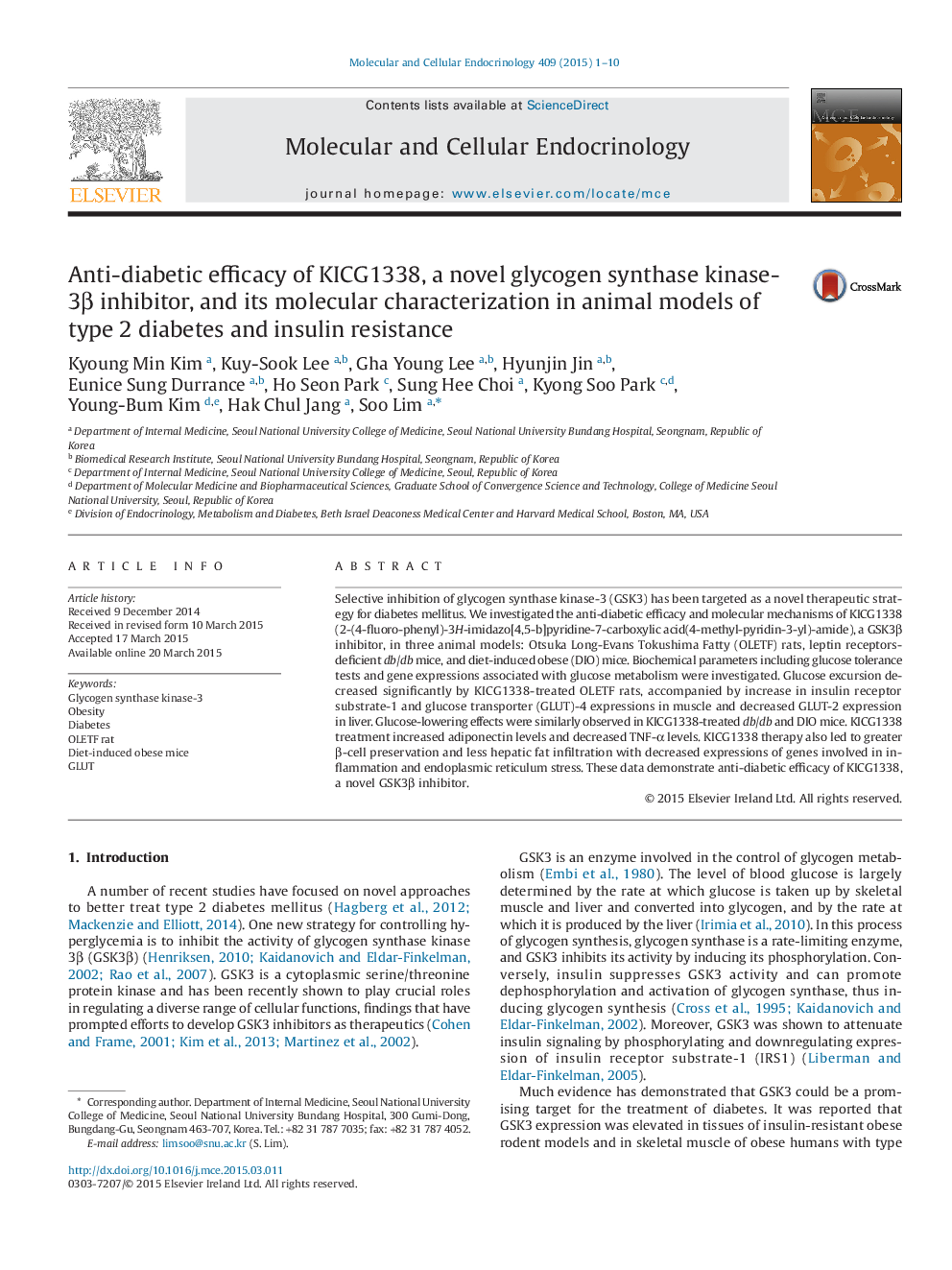| Article ID | Journal | Published Year | Pages | File Type |
|---|---|---|---|---|
| 2195785 | Molecular and Cellular Endocrinology | 2015 | 10 Pages |
•KICG1338, a novel GSK3β inhibitor, showed distinct glucose-lowering effects in three different animal models of diabetes.•Treatment with KICG1338 resulted in less islet injury and a high β/α cell ratio in the pancreas of obese diabetic animals.•GSK3β inhibition by KICG1338 led to less fatty infiltration in the liver of insulin-resistant animals.•KICG1338 administration suppressed parameters related to inflammation and/or ER stress including TNF-α, IL-1β, and MCP1.
Selective inhibition of glycogen synthase kinase-3 (GSK3) has been targeted as a novel therapeutic strategy for diabetes mellitus. We investigated the anti-diabetic efficacy and molecular mechanisms of KICG1338 (2-(4-fluoro-phenyl)-3H-imidazo[4,5-b]pyridine-7-carboxylic acid(4-methyl-pyridin-3-yl)-amide), a GSK3β inhibitor, in three animal models: Otsuka Long-Evans Tokushima Fatty (OLETF) rats, leptin receptors-deficient db/db mice, and diet-induced obese (DIO) mice. Biochemical parameters including glucose tolerance tests and gene expressions associated with glucose metabolism were investigated. Glucose excursion decreased significantly by KICG1338-treated OLETF rats, accompanied by increase in insulin receptor substrate-1 and glucose transporter (GLUT)-4 expressions in muscle and decreased GLUT-2 expression in liver. Glucose-lowering effects were similarly observed in KICG1338-treated db/db and DIO mice. KICG1338 treatment increased adiponectin levels and decreased TNF-α levels. KICG1338 therapy also led to greater β-cell preservation and less hepatic fat infiltration with decreased expressions of genes involved in inflammation and endoplasmic reticulum stress. These data demonstrate anti-diabetic efficacy of KICG1338, a novel GSK3β inhibitor.
